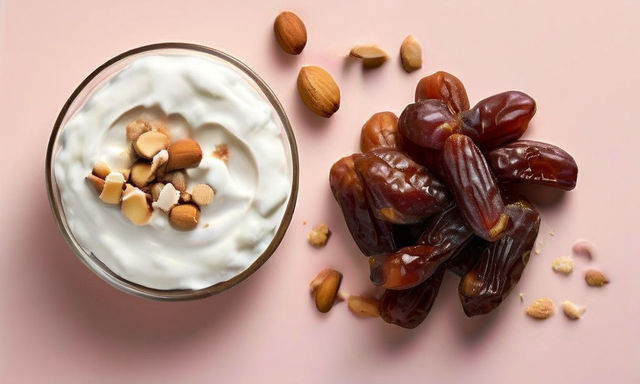Video: Why Can't I Lose Weight?
Many individuals struggle with weight loss, often feeling frustrated when the numbers on the scale don't budge despite making an effort to eat less. One possible explanation could be hidden calories in foods that are perceived as healthy or innocuous. Foods like peanut butter, jam, cashews, coconut yogurt, and dates are packed with nutrients but also have high caloric densities that can easily contribute to a surplus in daily calorie intake. This article explores the hidden calories in these common foods and offers tips on how to enjoy them mindfully to avoid unintentional overeating.
Hidden Calories in Everyday Foods
Understanding the calorie content of what you're eating can significantly impact your weight management efforts. Here’s a closer look at some popular foods that might be contributing more calories than you realize:
1. Peanut Butter
- - Caloric Content: Approximately 200 calories per two tablespoons
- - Why It’s Misleading: Peanut butter is rich in protein and healthy fats, which are excellent for nutrition, but it's very easy to consume in large quantities. Those two tablespoons can add up quickly if you're not measuring, especially when spreading on bread or adding to smoothies.
2. Jam
- - Caloric Content: Roughly 100 calories per two tablespoons
- - Why It’s Misleading: Jam is often seen as a fruity, seemingly harmless addition to toast or yogurt. However, it's high in sugar, and few people stop at just one tablespoon, which means calorie intake from jam can add up without contributing much in the way of nutrition.
3. Cashews
- - Caloric Content: Approximately 200 calories per 1/4 cup
- - Why It’s Misleading: Nuts are a great source of healthy fats and protein, but they are extremely calorie-dense. A small handful of cashews can deliver a significant amount of calories, and they're so tasty that it’s easy to consume multiple handfuls in one sitting.
4. Coconut Yogurt
- - Caloric Content: Around 180 calories per 1/2 cup
- - Why It’s Misleading: Coconut yogurt is often marketed as a healthy, dairy-free alternative, rich in probiotics. However, many commercial varieties are sweetened with added sugars, increasing their calorie content significantly.
5. Dates
- - Caloric Content: About 20 calories per small date
- - Why It’s Misleading: Dates are a natural and nutritious sweetener full of fiber, but they are also very high in calories and natural sugars. Eating just a few dates can provide a large number of calories quickly.
6. Cream
- - Caloric Content: About 100 calories per two tablespoons
- - Why It’s Misleading: Cream is often added to coffee, desserts, and sauces, contributing a silky texture and rich flavor. However, its high fat content makes it extremely calorie-dense, and even small amounts can add a significant number of calories.

Tips for Managing Hidden Calories
Here are some tips to help you enjoy these foods while maintaining control over your calorie intake:
- 1. Measure Your Portions: Use measuring spoons or a food scale to keep track of how much you're actually consuming. This is particularly important for calorie-dense foods like peanut butter and cashews.
- 2. Read Labels Carefully: Pay attention to the nutrition facts and ingredient lists on food packaging. Be aware of serving sizes and added sugars, especially in products like yogurt and jam.
- 3. Opt for Whole, Unprocessed Options: Whenever possible, choose whole, unprocessed foods. Whole fruits, unsweetened yogurts, and raw nuts are healthier choices than their processed counterparts.
- 4. Be Mindful of Snacking: It’s easy to eat large amounts of high-calorie foods absentmindedly. Try to eat mindfully, paying attention to each bite, which can help you recognize when you are full.
- 5. Plan Your Meals and Snacks: Planning ahead can help you make smarter food choices and avoid reaching for convenient, calorie-dense snacks.
Conclusion
While these foods can be part of a healthy diet, their high caloric density requires careful consideration, especially if you are monitoring your weight. By being aware of the hidden calories in these common items, you can better manage your overall calorie intake and make more progress toward your weight loss goals. Always remember that balance and moderation are key in achieving and maintaining a healthy weight.
Disclaimer: This blog post is for informational purposes only and does not constitute medical advice. Always consult with a healthcare professional before making significant changes to your diet, especially if you have specific health conditions or dietary needs.
Ready to level-up?
Create meal plans 10x faster, follow up with your clients through our mobile app, and never struggle with meal planning or recipe management again.